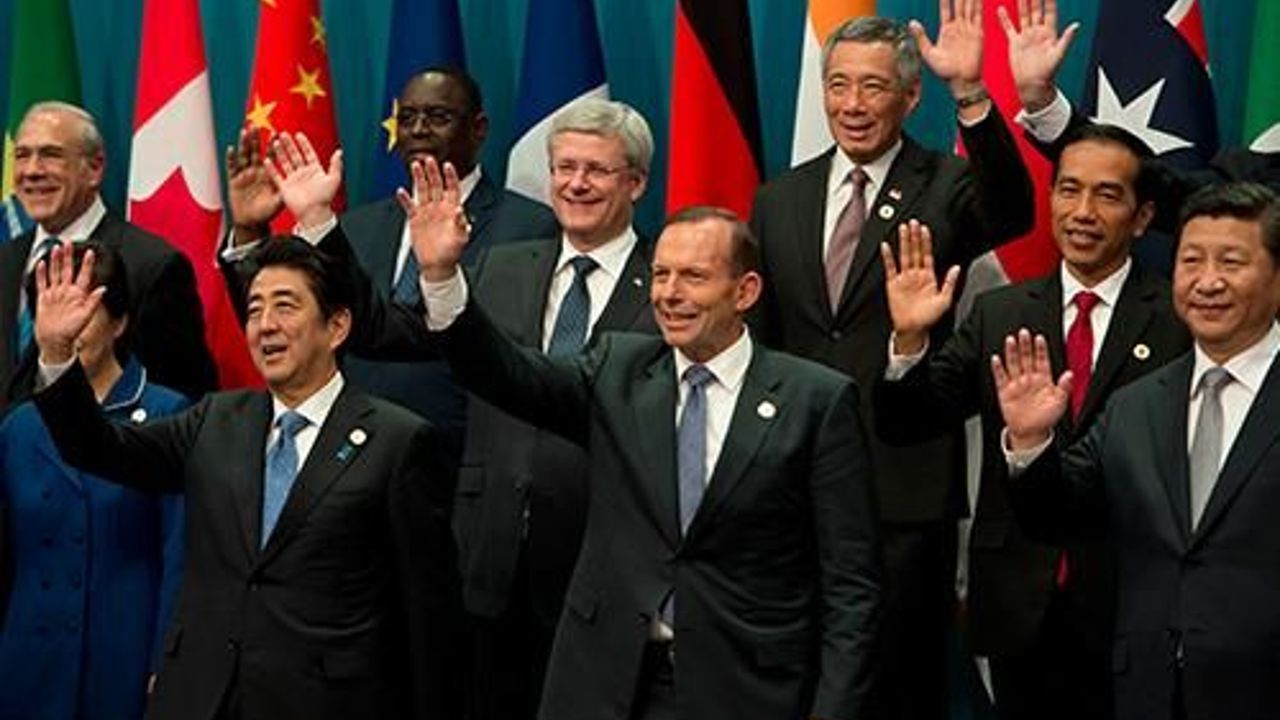G20 leaders vow to support battle against Ebola
World |
Call upon international stakeholders for more contribution to mitigate the effects of the deadly virus

Font Size:
World leaders at Saturday's G20 Summit in Australia have expressed their determination to do whatever it takes to assist West Africa in its present battle with the deadly Ebola virus.
A statement released by the leaders on the outbreak of the disease that has claimed around 5,000 lives said that "members are committed to do what is necessary to ensure the international effort can extinguish the outbreak and address its medium-term economic and humanitarian costs."
They voiced deep concern over the spread and effects of the contagious disease in Guinea, Liberia and Sierra Leone, and praised the efforts of healthcare and relief workers as well as those of the World Health Organization.
The statement stressed that G20 leaders would use bilateral, regional and multilateral channels, and work in partnership with non-governmental stakeholders to promote safe conditions and training for those assisting those stricken with Ebola.
"We will work to expedite the effective and targeted disbursement of funds and other assistance, balancing between emergency and longer-term needs," the statement said.
G20 leaders also called upon international and regional institutions, civil society and the private sector to coordinate with states to soothe the impacts of the crisis by guaranteeing a longer-term economic recovery.
"In this regard, we urge the World Bank Group and International Monetary Fund, or IMF, to continue their strong support for the affected countries and welcome the IMFs initiative to make available a further $300 million to stem the Ebola outbreak and ease pressures on Guinea, Liberia and Sierra Leone, through a combination of concessional loans, debt relief, and grants," their statement said.
The WHO has said that a total of 14,098 people worldwide have contracted the virus to date, mainly in Guinea, Liberia and Sierra Leone.
The tropical fever, which first appeared in 1976 in Sudan and the Democratic Republic of Congo, can be transmitted to humans from wild animals and also spreads through contact with the body fluids of an infected person.
Doctors say common symptoms of Ebola include high fever and headaches, followed by vomiting and internal and external bleeding.
Anadolu Agency
A statement released by the leaders on the outbreak of the disease that has claimed around 5,000 lives said that "members are committed to do what is necessary to ensure the international effort can extinguish the outbreak and address its medium-term economic and humanitarian costs."
They voiced deep concern over the spread and effects of the contagious disease in Guinea, Liberia and Sierra Leone, and praised the efforts of healthcare and relief workers as well as those of the World Health Organization.
The statement stressed that G20 leaders would use bilateral, regional and multilateral channels, and work in partnership with non-governmental stakeholders to promote safe conditions and training for those assisting those stricken with Ebola.
"We will work to expedite the effective and targeted disbursement of funds and other assistance, balancing between emergency and longer-term needs," the statement said.
G20 leaders also called upon international and regional institutions, civil society and the private sector to coordinate with states to soothe the impacts of the crisis by guaranteeing a longer-term economic recovery.
"In this regard, we urge the World Bank Group and International Monetary Fund, or IMF, to continue their strong support for the affected countries and welcome the IMFs initiative to make available a further $300 million to stem the Ebola outbreak and ease pressures on Guinea, Liberia and Sierra Leone, through a combination of concessional loans, debt relief, and grants," their statement said.
The WHO has said that a total of 14,098 people worldwide have contracted the virus to date, mainly in Guinea, Liberia and Sierra Leone.
The tropical fever, which first appeared in 1976 in Sudan and the Democratic Republic of Congo, can be transmitted to humans from wild animals and also spreads through contact with the body fluids of an infected person.
Doctors say common symptoms of Ebola include high fever and headaches, followed by vomiting and internal and external bleeding.
Anadolu Agency
Similar News
Video News

WORLD
26 Mart 2024 - 11:18
Photo News






